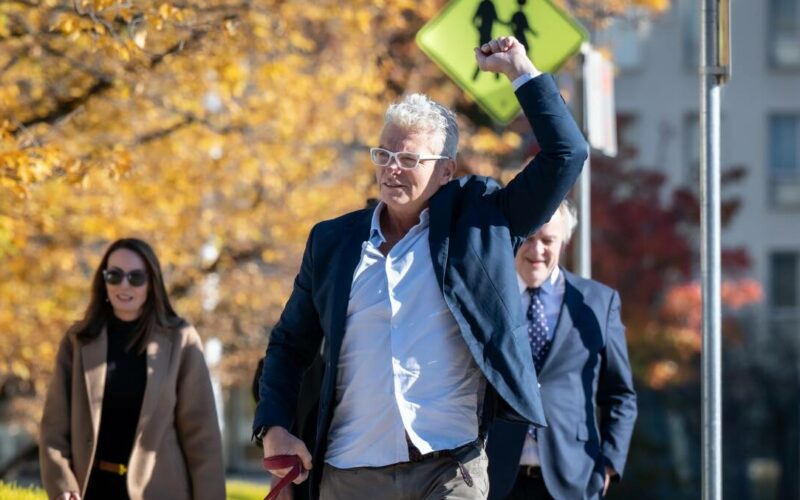Eight years after Australia began investigating alleged war crimes in Afghanistan, former Australian Army lawyer David McBride has been sentenced to five years and eight months in prison for exposing information about these crimes. McBride, the first individual punished in relation to the allegations, will be eligible for parole on August 13, 2026.
Supporters of McBride argue that the Australian government is prioritizing punishment of the whistleblower over accountability for the alleged war crimes themselves. Rawan Arraf, executive director of the Australian Centre for International Justice, expressed her dismay, calling McBride’s imprisonment a travesty. Kieran Pender, acting legal director of the Human Rights Law Centre, warned that the sentence could have a chilling effect on potential whistleblowers.
McBride arrived at the Supreme Court in Canberra, Australia, with his pet dog and supporters. In an interview with Al Jazeera before his trial, McBride stated his intent was to spark a discussion on whether his actions were justified.
The sentencing follows nearly seven years after the Australian Broadcasting Corporation (ABC) published the Afghan Files, a series of articles based on McBride’s disclosures. The series led to a raid on the ABC headquarters by Australian Federal Police in June 2019. Subsequent government inquiries confirmed the credibility of the war crime allegations revealed in the articles.
Last year, an Australian judge found Ben Roberts-Smith, Australia’s most decorated soldier, complicit in the murder of three Afghan men. This finding emerged from defamation proceedings Roberts-Smith initiated against newspapers reporting on the allegations.
Al Jazeera sought comments from the Australian Department of Foreign Affairs and Trade and the Office of the Special Investigator regarding the current status of inquiries into the alleged war crimes but received no immediate response.
McBride’s sentencing occurred just months after Dan Oakes, one of the ABC journalists behind the Afghan Files, was awarded an Order of Australia Medal for his contribution to journalism. Oakes expressed pride in the positive impact of the reporting, despite not having contact with McBride in recent years.
Support for McBride remains strong among human rights advocates, senators, and journalists. Australian Greens Senator David Shoebridge called McBride’s potential imprisonment an indelible stain on the government. Peter Greste, executive director of the Alliance for Journalists’ Freedom, emphasized the importance of protecting journalists and their sources, noting Australia’s decline in global press freedom rankings.
McBride’s case is part of a broader context involving other Australians facing repercussions for exposing sensitive information. Notably, Julian Assange is facing extradition hearings in the United Kingdom related to his potential extradition to the United States later this month.








